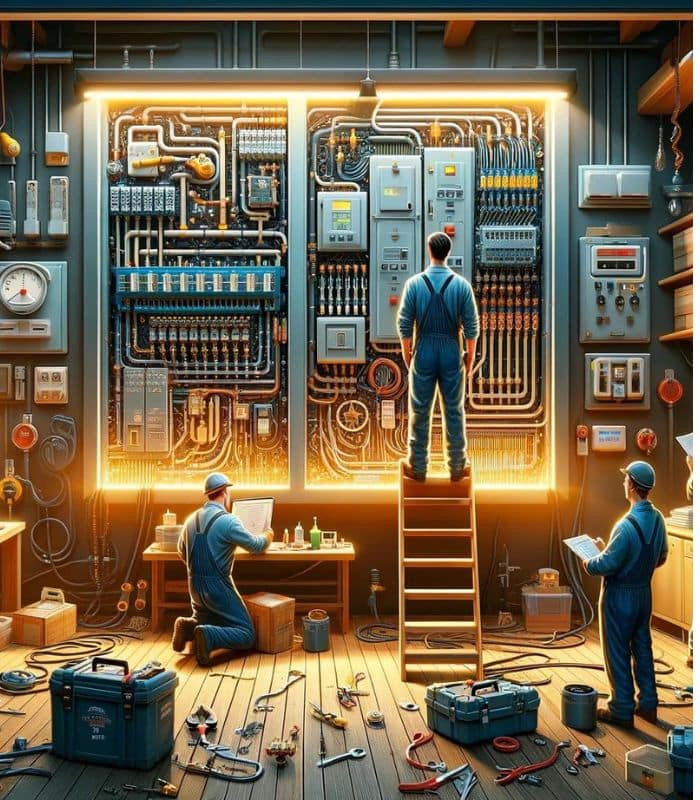Top 10 Electrical Hazards and How to Avoid Them
Electricity is essential in our daily lives, but it can be dangerous if not handled properly. Electrical hazards can cause fires, injuries, and even death. This guide will help you understand the top electrical hazards and how to prevent them, keeping your home and workplace safe.

Top 10 Electrical Hazards
1. Faulty Wiring
Faulty wiring is a common cause of electrical hazards. It can lead to electrical fires, shocks, and short circuits. Look for signs like frayed wires, scorch marks, or a burning smell.
2. Overloaded Circuits
Overloading circuits by plugging in too many devices can cause overheating and fires. Use power strips with circuit breakers and avoid daisy-chaining multiple strips.
3. Wet Areas
Water and electricity don’t mix. Wet areas like kitchens, bathrooms, and outdoor spaces can be dangerous. Keep electrical devices away from water and ensure outlets in these areas are GFCI-protected.
4. Damaged Electrical Appliances
Old or damaged appliances can be hazardous. Inspect your devices regularly for wear and tear, and replace any that show signs of damage.
5. Improper Grounding
Proper grounding is essential for safety. It helps prevent electrical shocks and fires. Ensure your home’s electrical system is properly grounded by a professional.
6. Exposed Electrical Parts
Exposed wires or electrical parts pose a serious risk of shock and fire. Cover any exposed wires with electrical tape or conduit and repair damaged outlets and switches.
7. Using the Wrong Wattage
Using bulbs with higher wattage than recommended can overheat fixtures and cause fires. Always use the correct wattage for your light fixtures.
8. Outdated Electrical Systems
Older homes may have outdated wiring that can’t handle modern electrical loads. Consider updating your electrical system if your home is more than 30 years old.
9. Lack of Maintenance
Regular maintenance of your electrical system can prevent hazards. Schedule inspections and maintenance with a licensed electrician to ensure everything is in good working order.
10. DIY Electrical Work
DIY electrical work can be risky if you’re not trained. Always hire a licensed electrician for any electrical repairs or installations to ensure safety.
Preventive Measures
- Regular Inspections: Have your electrical system inspected by a professional every few years.
- Use Surge Protectors: Protect your devices from power surges with surge protectors.
- Keep Dry: Ensure your hands are dry when using electrical devices and keep them away from water.
- Proper Installation: Ensure all electrical installations are done by a licensed electrician.
- Stay Educated: Learn about electrical safety and teach your family members.
Common Symptoms and Signs of Electrical Problems
- Flickering or dimming lights
- Frequent circuit breaker trips
- Outlets that are warm to the touch
- Burning smell near appliances or outlets
- Sparking or buzzing sounds from outlets
What to Do in Case of an Electrical Emergency
- Stay Calm: Don’t panic and assess the situation.
- Turn Off Power: If safe, turn off the power from the main breaker.
- Avoid Water: Don’t touch electrical equipment with wet hands or if standing in water.
- Call for Help: Contact emergency services or a licensed electrician immediately.
- Use a Fire Extinguisher: For small electrical fires, use a Class C fire extinguisher.
Importance of Professional Electrical Inspections
Regular electrical inspections can prevent hazards and ensure your home’s electrical system is safe and up to code. A certified electrician can identify potential issues and recommend necessary repairs or upgrades.
